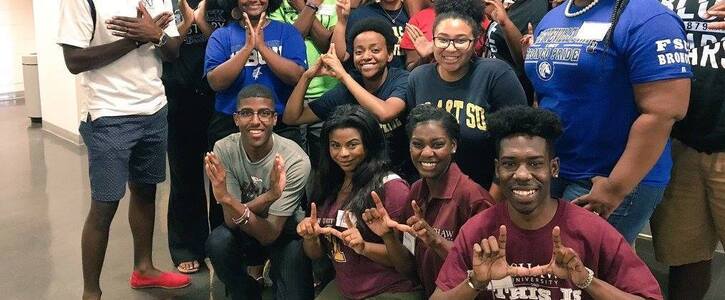500 signatures reached
To: Raleigh City Council
Protect HBCUs from Biased Policing & Surveillance

Deny Shaw's President, Dr. Dubroy's, request to place a Raleigh Police Department substation on campus.
Why is this important?
The president of Shaw University has requested a police substation right on the campus of an HBCU under the guise of "public safety." This sets a dangerous precedent for schools, HBCUs, public or private, in Raleigh and beyond.
Raleigh Police Department (RPD) disproportionately stop, search, and arrest youth of color for minor infractions.
• National studies show that black and white populations use marijuana at about the same rates; yet in Wake County where RPD is the largest law-enforcement agency, black people represent 67% of low-level marijuana arrests but only 21% of the population.
• From 2010-2015, black drivers were 2.7 times more likely to be searched by police following a traffic stop but 10% less likely to have contraband.
• From 2002-2013, black men under age of 30 were searched at a rate of about 7%, whereas white men were searched at a rate of 4%. As men of color age, the likelihood of being searched significantly decreases.
Increased presence of police on campus will not make students safer or improve-police community relations but increase tensions and once again create a pipeline to the criminal justice system.
"The university should spend less time trying to monitor student behavior and more time investing in the school," said James Crawford a Shaw Junior from Fayetteville quoted in a January 22nd article of the News & Observer.
What Raleigh needs is increased investment in black futures: education, counselors, mental health services, jobs programs, affordable housing, and beyond. For black youth, more interactions with police doesn't mean increased public safety.
Raleigh Police Department (RPD) disproportionately stop, search, and arrest youth of color for minor infractions.
• National studies show that black and white populations use marijuana at about the same rates; yet in Wake County where RPD is the largest law-enforcement agency, black people represent 67% of low-level marijuana arrests but only 21% of the population.
• From 2010-2015, black drivers were 2.7 times more likely to be searched by police following a traffic stop but 10% less likely to have contraband.
• From 2002-2013, black men under age of 30 were searched at a rate of about 7%, whereas white men were searched at a rate of 4%. As men of color age, the likelihood of being searched significantly decreases.
Increased presence of police on campus will not make students safer or improve-police community relations but increase tensions and once again create a pipeline to the criminal justice system.
"The university should spend less time trying to monitor student behavior and more time investing in the school," said James Crawford a Shaw Junior from Fayetteville quoted in a January 22nd article of the News & Observer.
What Raleigh needs is increased investment in black futures: education, counselors, mental health services, jobs programs, affordable housing, and beyond. For black youth, more interactions with police doesn't mean increased public safety.
How it will be delivered
Join us to deliver this petition at a February 7th City Council meeting at 6:30pm at 222 W. Hargett St Raleigh, NC.

